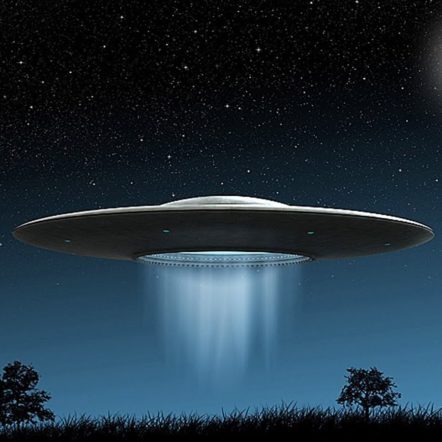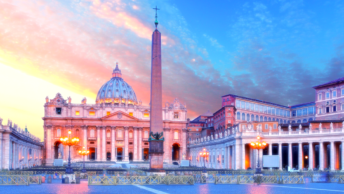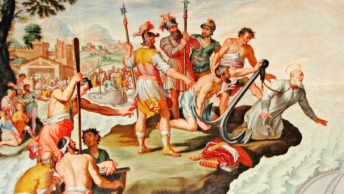We’ve heard about UFOs for more than half a century but they were always depicted as being explainable things like weather balloons or products of people’s overactive imaginations. But now there is evidence that they were and are very real phenomena for which there is considerable evidence, much of it possessed by the government but not acknowledged until now.
Former director of the Advanced Aerospace Threat Identification Program, Luis Elizondo, has stated that UFOs have been seen flying with “impunity” off the Virginia coast every day for several years. Also that they have proved capable of withstanding 600 to 700 G-force pressures, flying 13,000 an hour in the air and 200 or more miles an hour under water, defying the laws of gravity, and evading radar—all without discernable means of propulsion, wings, or control surfaces.
Virtually all experts reject the idea that such advanced vehicles could belong to another country on this planet. They are more inclined to believe UFOs are quite literally not of this world. Are they instead from another planet, galaxy, or solar system? Are they drones or piloted vehicles? In any case, they are certainly controlled by beings who are more capable, at least in technical matters, than any human being. Are they also more accomplished in other areas, such as medicine, astronomy, government, philosophy? We simply do not know. Nor do we have any idea about their nature as beings, whether they have a soul as well as a body, for example, and whether they are subject to bodily decline and death, as we are.
Such questions take us into the realm of theology, religion, and widely differing belief systems. The atheists among us will likely take the new information about UFOs as evidence that there is no God, or that there are many gods, even an infinity of them, all of them man-made. Atheists will no doubt also be more convinced than ever that Christ was just a man who died a horrible death but did not rise from it; that His Church is merely another human device, a very successful one to be sure, for attaining power over others; and that its teachings are not anchored in truth or reality. In short, atheists will conclude that have been right all along.
The very idea that atheists might react that way may be enough to trouble many Catholics (and other Christians and Jews), particularly those not well grounded in their faith. That reaction is premature. It is purely speculative and in no way obviates the profound questions about the meaning of existence we struggle with on planet earth. It merely writes those questions on a larger screen, one that embraces the entire universe. We still can and should ask why we are here, what force explains our existence, and what the characteristics of that force are. Needless to say, no book or library can probe these questions enough to satisfy our curiosity. Yet we can gain a few modest insights even in a brief space.
Suppose for a moment that the universe is occupied by many other intelligent beings, perhaps so many that our minds cannot grasp the enormity of the number. What does that mean? For one thing, that it is inconceivable that they sprang out of mindless nothingness. They must have been fashioned by something or someone with greater intelligence than they possess. And that thought suggests that our conception of God is not too great to be believable but instead not great enough, wondrous beyond imagining. Simply said, the more intelligent beings there are in the universe, the more awesome their Creator is!
Suppose too that some of the other intelligent beings are “fallen,” as the Bible tells us human beings are, but that others are not fallen (as the Bible does not comment on). What would that mean? It seems clear that the fallen ones would have suffered the same losses as our ancestors and therefore required Salvation. Would the life, death, and resurrection of Christ have taken place for them as it did for humans? The idea is not incompatible with our belief that Jesus is the “only begotten son” of the one true God. It could be that the only begotten son suffered persecution and death not once but a million or a billion times to restore the relationship between Creator and those created in “His image and likeness.”
That thought does not diminish the salvific act; it magnifies our understanding of God’s love. To cite but two small examples, it gives deeper meaning to the vision of St. John of the Cross depicting the crucified Christ extended to infinity that Salvador Dali later expressed in his famous painting. And it helps us grasp more fully French Jesuit Teilhard de Chardin’s concept of a “Christocentric Universe.”
But what would it mean if other intelligent beings did not disobey God, as our ancestors did, but instead obeyed Him, remained in the “garden,” and retained the gifts God bestowed on them at their creation? Obviously, that their minds were not clouded nor their wills weakened by “original sin” as our first parents’ were. Also, presumably, that they and their progeny did not need Salvation and thus were blessed with a closeness with the Father, the Son, and the Holy Spirit that goes beyond our imagining. These thoughts are humbling. They also help to explain the evidently superior intelligence implied by the UFO phenomenon. They could suggest, as well, a higher level of virtue than is common among us humans. And that, too, is humbling. (Perhaps those beings could give us new insights not only into technology but also into loving God and neighbor.)
For Catholics (and other Christians and Jews), the UFO phenomenon should not be considered a threat to their faith but instead as a reinforcement of it. In this matter, as in countless others, our guiding thought should be the calming words mentioned no fewer than 105 times in Sacred Scripture—“Do not be afraid.”
Copyright © 2021 by Vincent Ryan Ruggiero. All rights reserved







